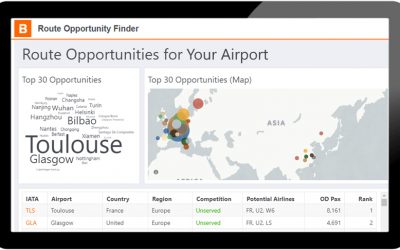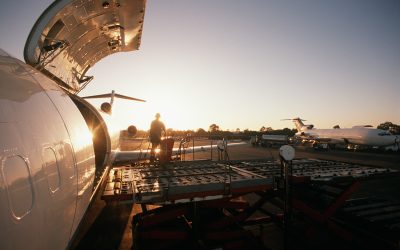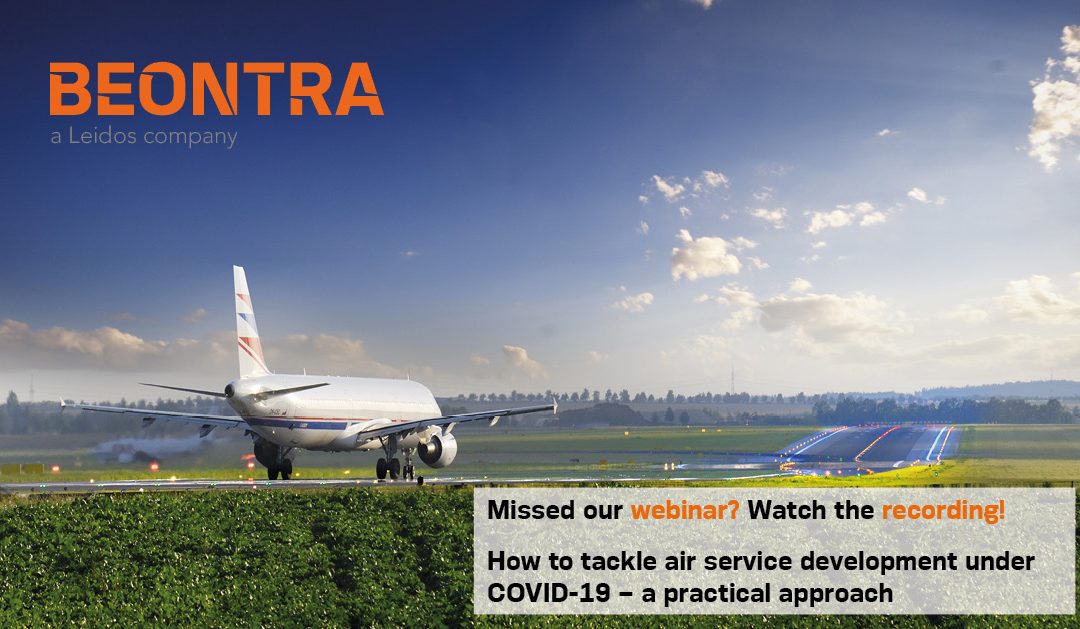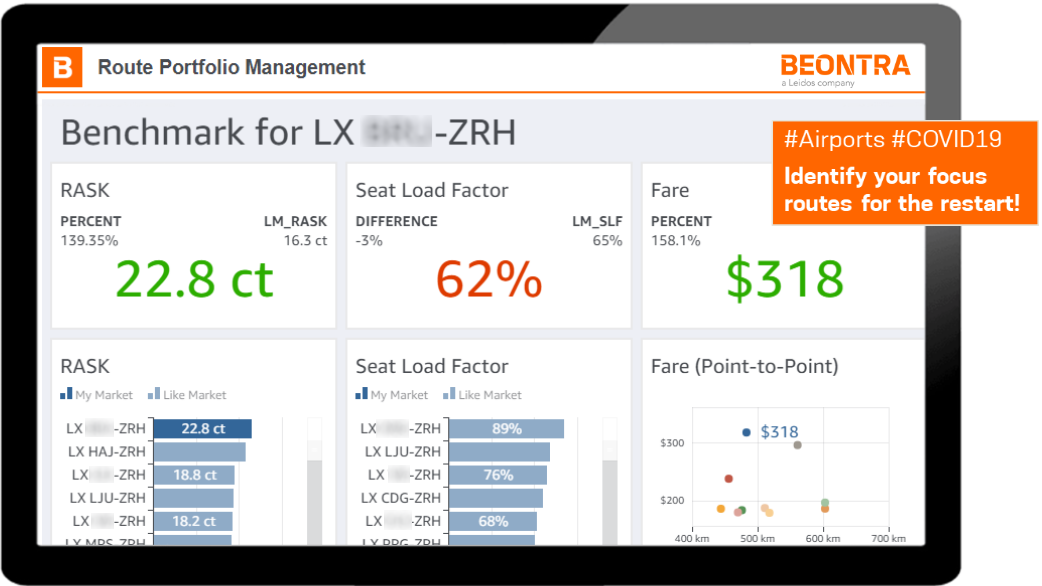Research conducted by BEONTRA reveals that more than half of all newly introduced routes have an origin-destination (OD) market size below 1,000 passengers prior to the opening. This finding proves that the common approach to use OD demand data to identify potential...
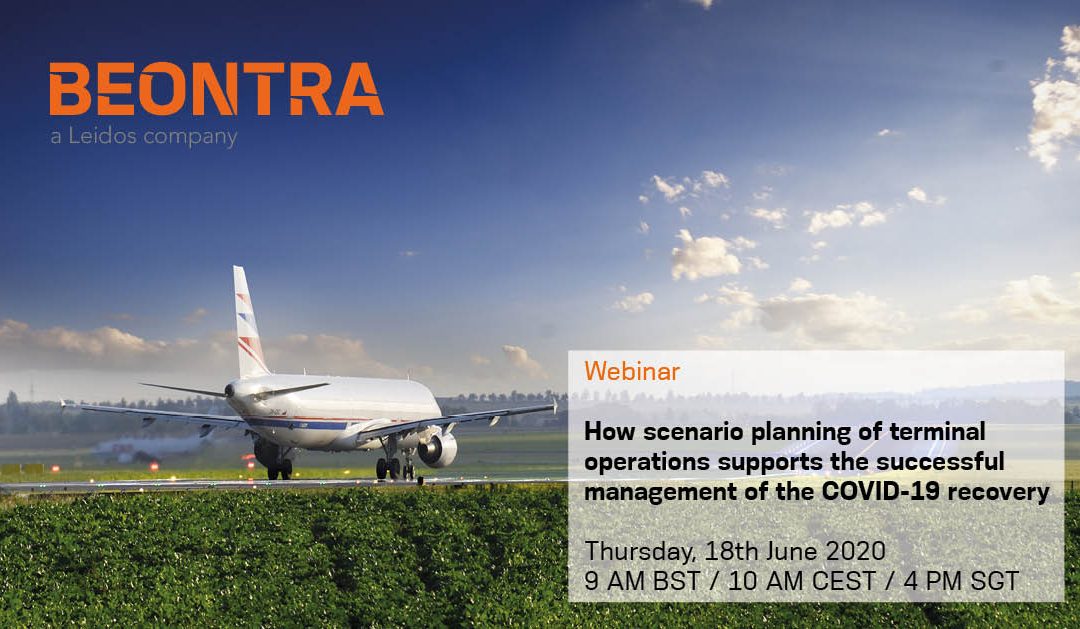
How scenario planning of terminal operations supports the successful management of the COVID-19 recovery
As most countries are slowly recovering from the Covid-19 pandemic, air traffic is expected to resume and pick up momentum. While restarting operations is good news for all airports, new rules and regulations to protect passengers’ and airport staff’s safety are in full effect and require special planning by airport capacity planners. This important planning aims to lay out possible future scenarios for planners to help be ready for any sort of recovery.
Join our webinar in which we will discuss an approach to scenario planning of terminal operations to successfully manage the recovery from COVID-19:
- Finding the right balance between safety and efficiency
- Being flexible and prepared for any kind of operating scenario
- Keeping passenger confidence high
Make sure that airport operations are viable with the new health and safety measures in place!
Click here to register for the webinar, collect ideas and share your thoughts!
LATEST NEWS
Discover new route opportunities for your airport
The capacity vs. demand challenge – BEONTRA’s new Capacity Demand Dashboard
Airports are going to run out of capacity due to the phenomenal growth of the aviation industry. We are confronted with this constantly. Still, the question remains: what can your organization do to meet the rising demand in the best way? BEONTRA can support you to...
Unleash the power of your data / Security Forecasting with BEONTRA has just become more accurate – Show Up Profiles Per Flight
A first version of an interface has been finalized that allows the usage of show up profiles for each individual flight. Besides the higher level of detail that can now be covered resulting in more accuracy of your Security Forecast, a huge advantage of the interface...

